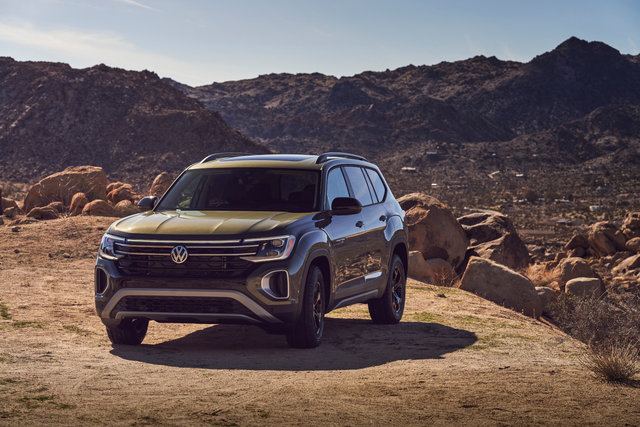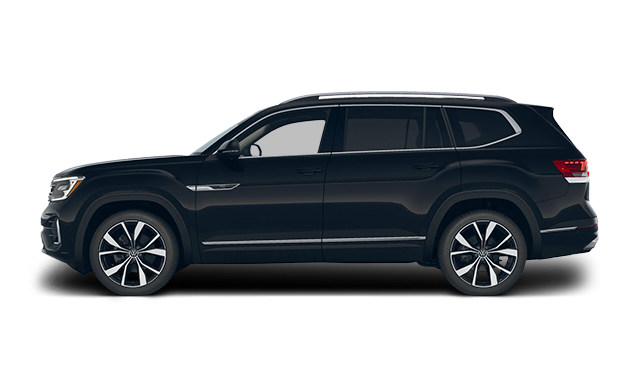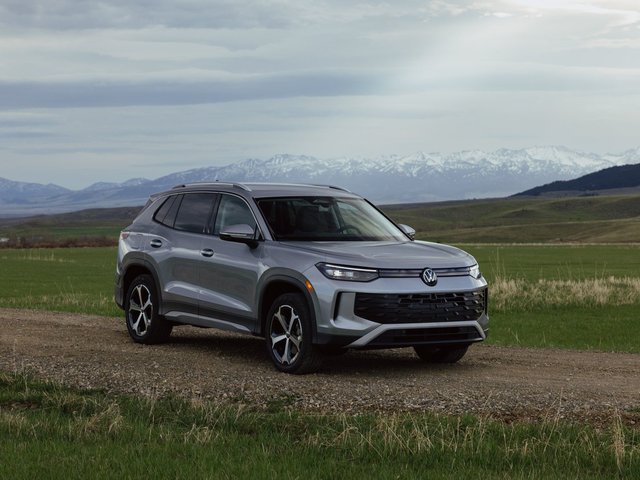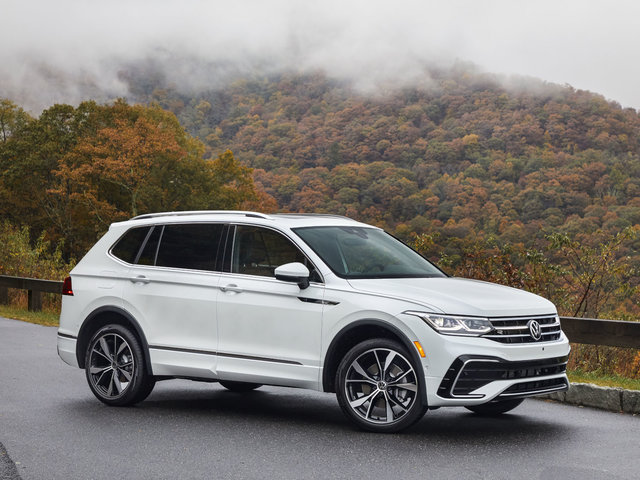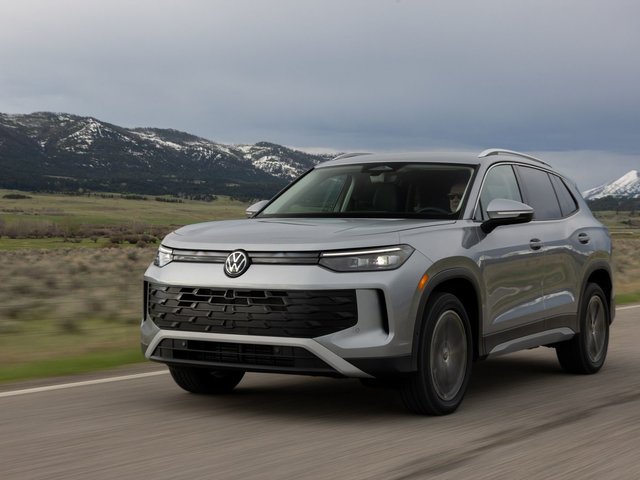September in British Columbia means cooler mornings, golden light across valley orchards, and the start of apple harvest season in the Okanagan. Families from Coquitlam planning the drive east through the Fraser Valley and over the Coquihalla Highway need a vehicle that handles cargo, passengers, and variable road conditions with equal capability. The 2026 Volkswagen Atlas offers 2,735 L of cargo space with seats folded, seating for seven, and standard 4MOTION all-wheel drive—a practical setup for harvest trips that balance fresh fruit, camping gear, and the entire family.
The drive from Coquitlam to Kelowna covers approximately 400 kilometres, climbing from sea level to the Coquihalla Summit at 1,244 metres before descending into the Interior. Weather can shift quickly in September, bringing rain in the Fraser Valley and the possibility of early snow at higher elevations. Proper packing and a capable vehicle make the difference between a smooth trip and unnecessary complications.
Organizing Cargo Space for the Journey
The Atlas provides 2,735 L of maximum cargo volume with all rear seats folded. For apple-picking trips, this space accommodates coolers for keeping fruit fresh, bins for organizing different apple varieties, camping equipment if you plan to stay in provincial parks, and room for souvenirs from farm stands and cideries.
Start by placing heavier items like coolers and storage bins against the back of the front seats, creating a stable base. Use cargo nets or bungee cords to secure lighter items and prevent shifting during mountain descents. The Atlas includes tie-down hooks in the cargo area for attaching straps.
If you're traveling with seven passengers, the third row stays upright and cargo space reduces significantly. In this configuration, focus on packing efficiently: collapsible coolers, soft-sided bags, and vacuum-sealed sleeping bags minimize bulk. Roof rails offer additional capacity for items like tents, canopies, or overflow luggage in weatherproof cargo boxes.
Securing Child Seats and Passengers
The Atlas accommodates child seats across all three rows using ISOFIX anchors and tether points. For longer trips, place younger children in the second row where parents can reach them easily for snacks, entertainment, or comfort breaks. The second row offers ample legroom and comfortable seating for adults or older children.
The third row works well for additional children or shorter adults. Access is straightforward thanks to the second row's Easy Access feature, which slides forward to create a wide opening. Pack a small bag with activities, snacks, and water bottles within reach of third-row passengers to minimize mid-drive stops.
Preparing for Variable Weather on Highway 3
While most travelers take the Coquihalla Highway (Highway 5) for speed, some families prefer the more scenic Highway 3 through Manning Park and the Similkameen Valley. September weather on either route can include rain in lower elevations and potential snow near mountain passes.
The Atlas comes equipped with 4MOTION all-wheel drive, which automatically distributes power to all four wheels when sensors detect reduced traction. This system provides confidence on wet pavement, gravel access roads to campgrounds, and early-season snow. Pack an emergency kit including blankets, flashlights, extra water, and basic tools. Keep windshield washer fluid topped up and ensure wiper blades are in good condition.
Maximizing Fuel Efficiency for the Drive
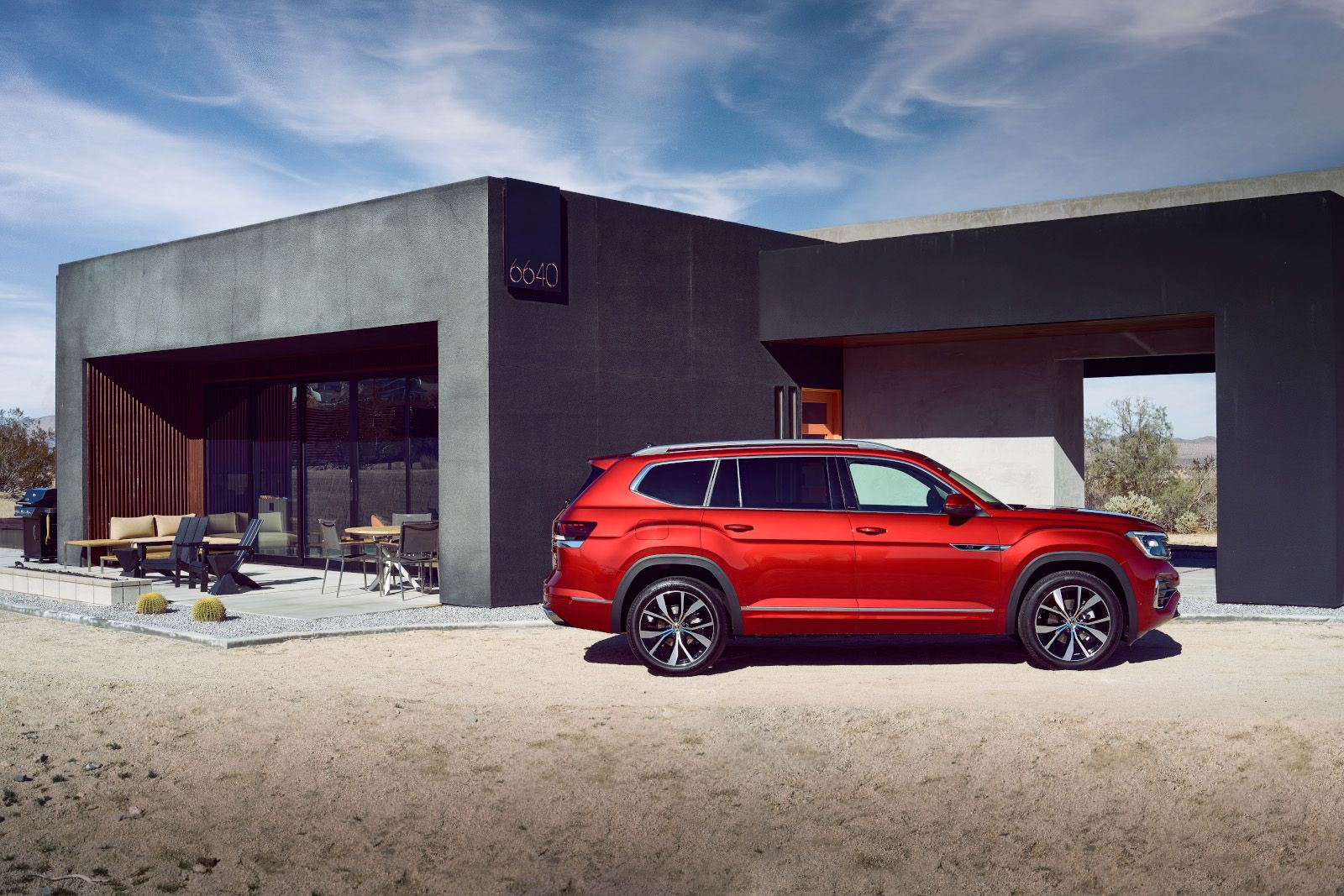
The 2026 Atlas returns 11.0 L/100 km combined fuel economy. On a round trip from Coquitlam to Kelowna (approximately 800 kilometres total), expect to use around 88 litres of fuel. Plan fuel stops in Hope, Merritt, or Peachland to avoid running low in areas with limited services.
Use the Atlas's ECO driving mode on highway stretches to optimize fuel consumption. This setting adjusts throttle response and transmission shift points to prioritize efficiency without sacrificing safety or performance. Maintaining steady speeds on flat sections and avoiding rapid acceleration after stops helps extend range between fill-ups.
What to Pack for Apple-Picking and Camping
For Apple Picking:
- Reusable bins or boxes for transporting apples (orchards often provide bags, but bins prevent bruising)
- Coolers with ice packs to keep fruit fresh during the drive home
- Hand sanitizer and wet wipes for sticky hands
- Comfortable walking shoes for uneven orchard terrain
- Sunscreen and hats for daytime picking
For Camping (if staying overnight):
- Tent, sleeping bags, and sleeping pads
- Camp stove, cookware, and utensils
- Flashlights or headlamps with extra batteries
- Layered clothing for cool September evenings
- Firewood (purchase locally to avoid transporting pests)
Using Roof Rails for Extra Gear
The Atlas includes roof rails that support aftermarket cargo boxes or roof baskets. For families traveling with seven passengers and limited interior cargo space, a rooftop cargo box (typically 300–500 L capacity) provides room for bulkier items like tents, sleeping bags, or camping chairs.
Secure cargo boxes according to manufacturer instructions and check straps periodically during the trip. Roof-mounted cargo increases wind resistance and slightly reduces fuel economy, so factor this into fuel planning.
Road Trip Tips
|
Consideration
|
Recommendation
|
|
Departure Time
|
Leave early morning to avoid traffic and arrive at orchards during cooler hours
|
|
Rest Stops
|
Plan breaks every 2 hours; rest areas at Zopkios and Box Canyon on Highway 5
|
|
Weather Check
|
Monitor forecasts for mountain passes; snow can appear as early as mid-September
|
|
Tire Pressure
|
Check before departure and adjust for loaded vehicle weight
|
|
Entertainment
|
Download music, audiobooks, or podcasts before departure (cell service is limited in mountain areas)
|
Explore the Okanagan from Journey Volkswagen of Coquitlam
The 2026 Atlas handles family road trips with cargo space, seating flexibility, and all-wheel-drive confidence. Visit our team in Coquitlam to learn more about how the Atlas fits your travel plans.

